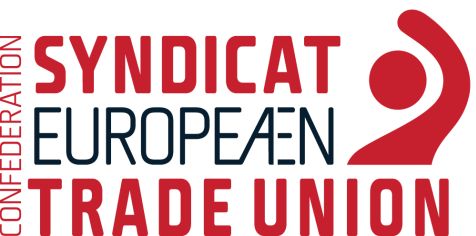
Cabin air is a health problem
The quality of cabin air is an important occupational health issue. It affects all cabin crew, forced to breathe contaminated air while working, sometimes for long hours.
The current design of aircrafts causes the air cabin to be intoxicated by engine fumes. This has both short- and long-term health effects; exposure to contaminated air results in crew impairment or, in some rare cases, in crew incapacitation. This jeopardises flight safety.
Regulatory authorities, aircraft manufacturers, safety agencies, scientists, airlines, occupational doctors, oil manufacturers, and crew unions have all acknowledged that contaminated air exposure occurs. While many reports dating back as far as the 1950s have scientifically supported these claims, there is still no adequate regulation to protect flying staff from contaminated ventilation supply air on aircrafts.
GCAQE film - Call for filters and sensors
Click on the flag to watch the video in your language:
GCAQE film - Fly Informed - Understanding filtration and 'bleed air' - Jan 2021
It’s time for cleaner air on planes
Document adopted, but downgraded from a standard to a technical report
Technical Committee (TC) 436 of the of the European Committee for Standardization (CEN) worked on the elaboration of a European standard - EN17436 - ‘Cabin Air Quality on Civil Aircraft: Chemical Compounds’. The aim was to define the requirements for chemical compounds in the cabin air of civil aircrafts, in order to provide technical solutions for cleaner and safer cabin air.
The ETUC participated in CEN/TC 436, since the beginning of its work, alongside the European Transport Federation (ETF), the Global Cabin Air Quality Executive (GCAQE), and independent consumer campaigners, to ensure that the concerns raised by air crew were properly addressed in the European standard. This work took several years, due to delays and interruptions by the airplane industry. At final enquiry stage, the document was approved by CEN members. However, rather than being adopted as a standard, the work was downgraded to a 'technical report', also with the new designator/number CEN/TR 17904:2022. In practice, this means the report provides guidance and recommendations, rather than specific requirements which would have otherwise incentivised industry to invest and adapt the design of their aircrafts for improvements in the health and safety of flying staff.
Importantly, while only at the level of guidance, the report provides critical recommendations that if implemented, would promote safer and cleaner cabin air:
- Installation and operation of adequate filtration to remove fumes from ventilation supply air, pending available technology. Filters would prevent or mitigate onboard exposure to fumes and reduce the need for cancelled/diverted flights and maintenance actions.
- The installation and operation of chemical sensors to notify maintenance workers and pilots of the type and location of contamination in the air supply. of contamination in air supply systems, pending available technology. Sensors would abbreviate onboard and facilitate quick and effective maintenance response.
- Implementation of "best practices" in aircraft maintenance, such as training maintenance personnel to avoid maintaining engines with oil and hydraulic fluid.
- The creation of an incident reporting system so that airlines can track health and safety, monitor maintenance programs and evaluate trends over time.
- The implementation of simple education and training programs to enable airline workers to recognize, respond and react to the presence of fumes on board.
Moving forward, important steps include disseminating information around the existence of such technical report among prevention delegates, participating in its evaluation, and in that context, demanding the approval of a technical standard, as opposed to general recommendations.
Let’s raise our voice
Trade union representatives can have their say in the development of the standard by participating and contributing directly in standardisation committees. After all, the health of workers – cabin crew – is at stake!
With their participation, Trade Unions provide relevant expertise and help achieve a balanced representation within the standardisation system.

How can you help? Contact your National Standardisation Body.
If your National Standardisation Body already participates in this work, then it will have set up a so-called mirror committee to CEN/TC 436 composed of national stakeholders who have an interest in the standard. If your National Standardisation Body does not have a mirror committee, you should ask that it sets one up. In either case, you should ask to be nominated as the national delegate to participate in the CEN meetings of TC/436.
According to the Regulation on European standardisation (EU) 1025/2012, national standardisation bodies have the obligation to ensure that all national stakeholders can participate, including trade unions.
If necessary, the ETUC Secretariat will help affiliates make contact with National Standardisation Bodies. Do not hesitate to contact the Secretariat should you require additional information.



